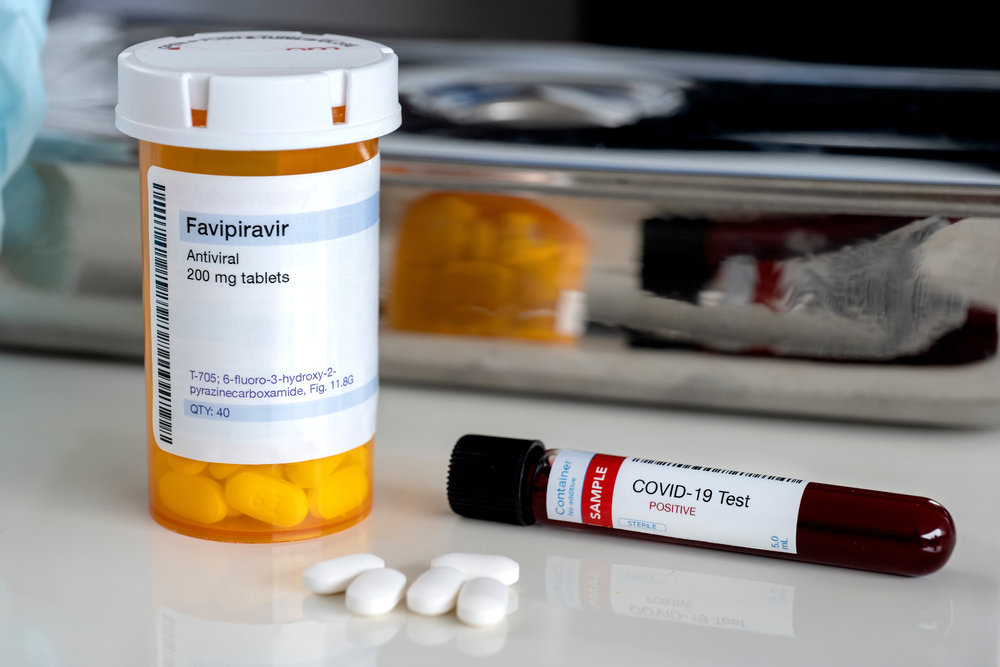Sections of medical experts have questioned the Indian drug regulatory agency’s approval last week for the use of an anti-viral drug called favipiravir to treat coronavirus disease, saying there is inadequate evidence to support this use.
The experts, including a senior clinician-researcher associated with the Indian Council of Medical Research, said the decision by the Central Drug Standard Control Organisation to approve favipiravir appears to have been taken in haste.
The CDSCO, responding to an application by the Mumbai-based Glenmark Pharmaceuticals, had approved the “restricted emergency use” of favipiravir for patients with mild and moderate Covid-19.
The regulatory agency has not responded yet to an email query from The Telegraph about the concerns raised by some medical experts.
The approval followed Glenmark’s submission of the “interim results” of a clinical trial conducted in 10 government and private hospitals across the country along with data from other studies on favipiravir elsewhere in the world, company officials said.
But experts said neither available peer-reviewed and published research studies nor the study still under way in India have so far yielded any robust evidence to show favipiravir can prevent severe Covid-19 or reduce deaths.
“The evidence is weak – I would not prescribe it to my patients,” said an infectious disease specialist who is a member of an ICMR expert panel on clinical research on Covid-19.
“Clinical trials on favipiravir are still under way and the results are awaited.”
The Union health ministry’s treatment guidelines for Covid-19 do not include the use of favipiravir. But medical experts have criticised those guidelines for another reason — they continue to recommend hydroxychloroquine also without evidence of benefit.
Glenmark has pointed out that Covid-19 treatment guidelines in Japan, Russia and Saudi Arabia include favipiravir. It also said among 2,050 patients who have already received the drug in Japan, high recovery rates have been observed in both mild and moderate patients.
The company’s clinical trial in India has a sample size of 150 patients — 90 patients with mild disease and 60 patients with moderate disease.
A company spokesperson said the interim results based on some 100 patients suggest the drug can speed up reduction in viral load. But medical researchers argue that patients with mild Covid-19 are expected to recover spontaneously.
Around 80 per cent of Covid-19 patients have mild illness, 15 per cent develop moderate illness that will require oxygen support or more, while 5 per cent need critical care or ventilators.
“In most patients, there is spontaneous recovery,” said Shri Prakash Kalantri, professor of internal medicine at the Mahatma Gandhi Institute of Medical Sciences, Wardha.
“The only research question is whether this drug can prevent severe disease or Covid-19 deaths — we don’t see evidence for this yet.”
Under the CDSCO approval, a patient would require a prescription from a medical practitioner.
“In the absence of any strong evidence of benefits to patients, this drug is likely to be prescribed to many patients with mild disease,” Kalantri said.
At the cost of Rs 103 per tablet, a treatment regimen could cost the patient anywhere from Rs 7,400 to Rs 13,000 for a seven to 14-day course.
The ICMR clinical research panel member who requested not to be named said the India study with 90 mild patients is not powered to determine efficacy of the drug in patients with mild illness.
“Because such a large proportion of mild patients recover, a clinical study would need to include a much larger number of patients with the mild disease for any statistically meaningful assessment of the drug,” the panel member said.
Favipiravir was developed by a Japanese company where it has been used as an anti-influenza drug. Early this year during the early months of the coronavirus pandemic, Glenmark decided to invest in producing generic versions of the drug.










